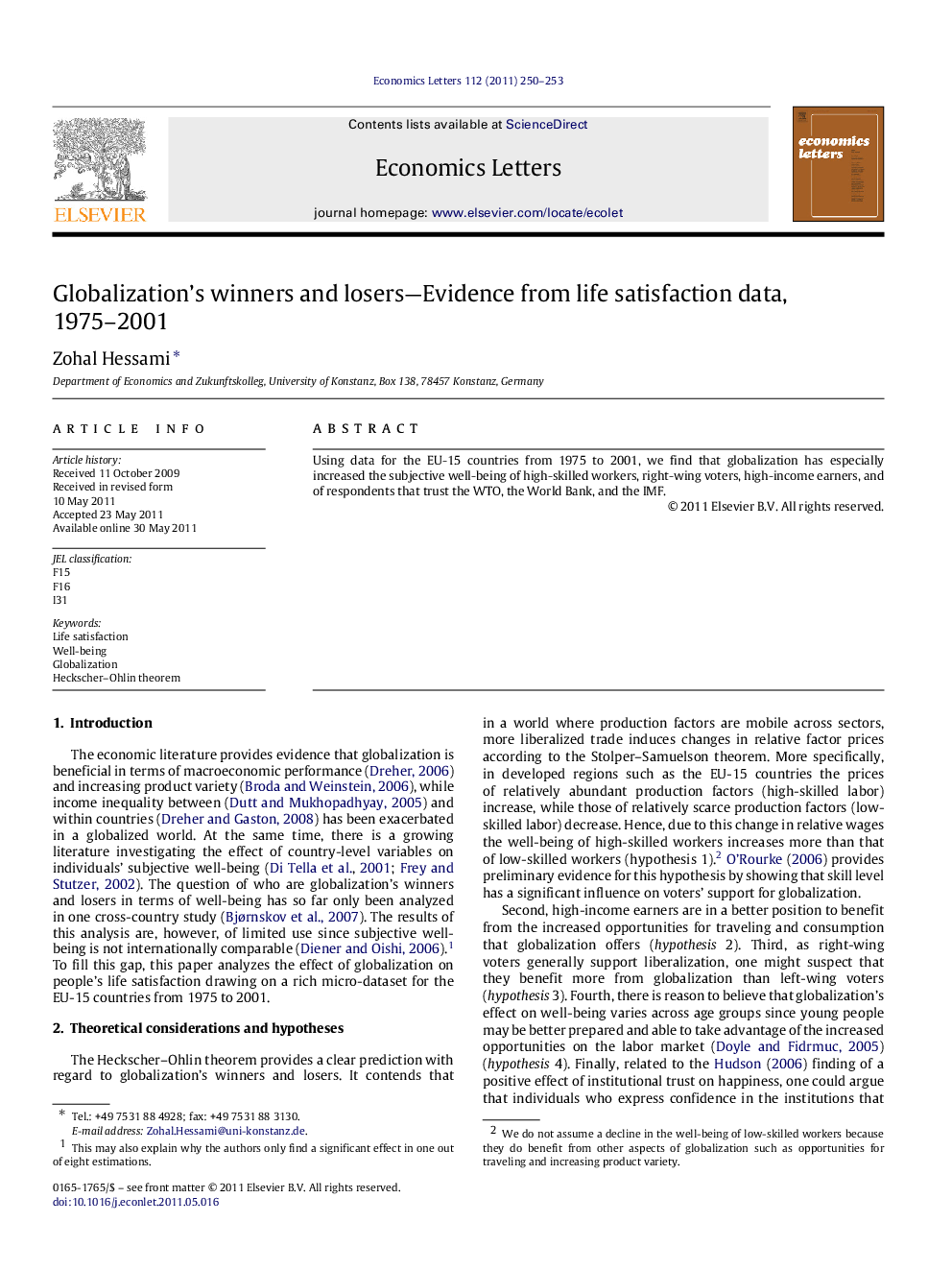| Article ID | Journal | Published Year | Pages | File Type |
|---|---|---|---|---|
| 5060307 | Economics Letters | 2011 | 4 Pages |
Abstract
Using data for the EU-15 countries from 1975 to 2001, we find that globalization has especially increased the subjective well-being of high-skilled workers, right-wing voters, high-income earners, and of respondents that trust the WTO, the World Bank, and the IMF.
⺠We analyze the effect of globalization on well-being for various population subgroups. ⺠Globalization significantly increases life satisfaction across all subgroups. ⺠Education, ideology, age, and relative income define the main beneficiaries of globalization. ⺠Trust in the WTO, the World Bank, and the IMF reinforces globalization's positive effect on well-being. ⺠Globalization has increased well-being more strongly for old people than for young people.
Related Topics
Social Sciences and Humanities
Economics, Econometrics and Finance
Economics and Econometrics
Authors
Zohal Hessami,
